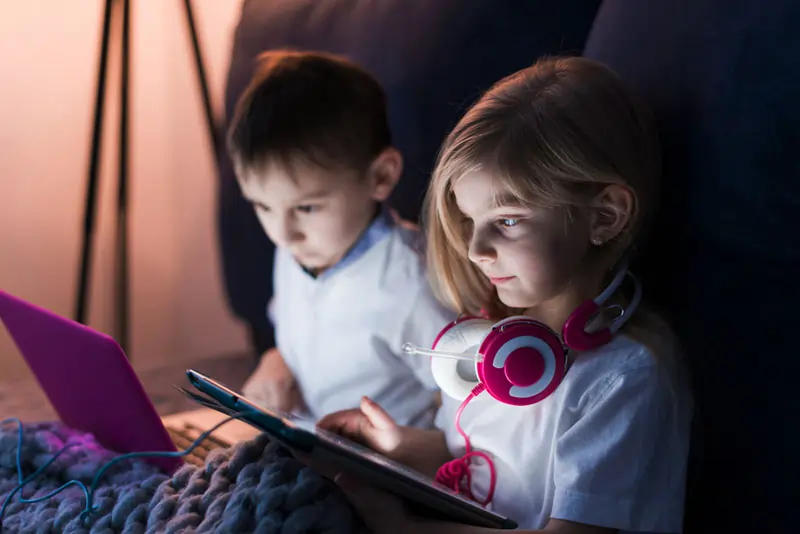From Fun to Functional: Leveraging Screen Time for Critical Growth in Children
Children are instinctively attracted to the screen-be it a game, an educational app, or a video. Hence, while much debate goes into how much is too much in regards to screen time, it is very important to delve into how this, when done with purpose, can actually breed critical growth in children. It’s about cognitive development, literacy, or better problem solving; there is an equal ratio.
Instead of merely letting children watch the screens as a source of entertainment, parents can use screen time for their children’s development by providing more functional skills. Through thoughtful strategies, games, and applications, the digital world may become an exceptional provider for learning opportunities, which will help build essential skills. The article will delve into how parents may turn screen time from just being something enjoyable to being completely functional, helping their children grow without indulgence.
Screen Time as a Tool for Cognitive Development
Games and educational apps are excellent interactive media that hold an added advantage over the more passive ones like TV or videos. The interactive content engages the child actively through which different skills of a child can be improved.
Games that would require problem-solving, pattern recognition, and critical thinking will have the child thinking on their feet because children grow very quickly within reason and decision-making functionality. Puzzles, strategy games, and building applications will stimulate both parts of the brain to help children not only improve their cognitive functions but also their creativity.
For example, the majority of preschool learning apps stimulate the application of memory, mastering of new language, and skills in early mathematics by activating interactive elements associated with a high involvement level. At the same time, even more demanding versions of children’s games for older ages put a child into a situation when he or she has to think strategically and make complex decisions, which better transfers cognitive skills to real life circumstances.
Encouraging Learning Through Gaming
One of the best growth opportunities would be using video games as a teaching tool. Teaching via games is a wonderful way to present children with such integral skills as reading comprehension, math, and even science. The more children are involved in the outcome of a game, the more likely they are going to do just about anything to learn and remember new things.
For instance, most of the literacy games create emphasis on word recognition reading fluency, and comprehension which help young learners to obtain foundational reading skills in an interactive approach. The children will be rewarded for the progresses, and they will continue practicing further while developing literacy skills.
Moreover, gaming increases critical literacy skills by presenting complex narratives, problem-solving scenarios, and challenges that require players to think critically. Those games that instruct with text or tell stories improve the ability to understand written information, thereby enhancing reading comprehension in subtle but powerful ways. These games can transform screen time into a profitable learning experience for your child.
Moderation: The Key to Effective Screen Time
Undoubtedly, there are myriad strengths in education through screen use; however, the need for moderation is emphatic. Excessive screen time has increasingly been proven to be no good and comprises a reduced ability to focus, sleeping issues, and social issues, among many others. Parents must watch out for children so that they do not get caught up with these vices.
This time should not substitute the organized usage of time. On the contrary, screen time must form part of the larger scheme of organized usage of time. The limits can be specific enough to indicate that children are allowed to use screens only for up to one or two hours a day. It is, in turn, enough to ensure that children have enough time designated for physical activities, social skills, and unstructured play. A balance of this kind allows children to take advantage of screen time without missing some of the great off-screen experiences.
Another approach is to focus screen time more on educational or creative content than just passive entertainment. Provide children with educational content that helps children learn new skills or expand their knowledge – for example, educational games, apps, and videos. This kind of approach would turn screen time around to be a more valuable, growth-oriented experience.
Choosing the Right Content for Growth
Not all screen time is created equal, and the right content is key to actualizing the growth potential. Of course, every parent will want to know which apps and games are available for kids and what kind of content would be appropriate, meeting educational standards, suitable for the age group, and engaging to watch.
Apps teaching early literacy skills such as shapes, colours, numbers, and letters will help the younger ones while games that are much more suitable for older kids that include better problem-solving, strategy, and creativity enhance critical thinking and cognitive development in children. Creativity apps like drawing or producing instruments can facilitate self-expression and improvements in fine motor skills.
Parents should also try multiplayer or collaborative apps and games. Such settings help children learn to work together, get on well with others, and communicate better. Though solo gaming is productive, it does not offer the bonus of getting used to handling conflicts, working together, or communicating well with people.
This is one where parents need to take the time to review what their children consume on a day-to-day basis because most of the content provided by popular programming usually exposes the child to educational goals that blend a well-rounded experience.
Setting the Stage for Lifelong Learning
Thoughtfully and well-managed screen time will lead to great long-term benefits in a child’s daily life. Used in moderation and focused on growth-oriented content, screen time becomes an essential tool in the fostering of curiosity, critical thinking, and literacy skills that the children will be using for the rest of their lives.
It involves guiding the children with curated content they bring so that these will optimize the learning process and spend considerable hours in both screen-based activities and out-of-screen activities. As the parents become informed in making choices on how their screen time is used, they empower their children to explore, learn, and grow far beyond the digital world.
Moving Forward with Purpose
So in looking at all the nuances of raising kids in the digital world, screen time certainly cannot be the enemy. It has the potential to be an incredibly useful tool for growth when used responsibly. Given the right content and emphasis on educationally oriented games and apps, screen time can be an even greater asset to your child’s development.
Rather than worrying about how screens might affect children, embracing the good that can come from them will lead to more balanced and well-rounded offspring. If done intentionally and for a purpose, screen time can truly go from fun to functional and set children up for success in both their digital and real-world lives.


